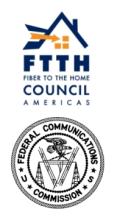Universal Service Fund Reform and Long-Term Affordability Solutions - Episode 577 of the Community Broadband Bits Podcast

This week on the podcast, Christopher is joined by Angela Siefer (Executive Director of the National Digital Inclusion Alliance) and Greg Guice (Chief Policy Officer at the Vernon Berg Group) to tackle a familiar and increasingly important topic in the area of the digital divide: Universal Service Fund (USF) reform.
At present, the USF is overcommitted and stretched to its limits, providing critical operational and infrastructure support for rural broadband on an unsustainable budget. Angela and Greg talk with Christopher about how modernizing and expanding the program - including making the Affordable Connectivity Program (ACP) permanent - is necessary to meet the equity and inclusion goals we have set as a country.
Along the way, the group discusses the challenges in designing solutions that address the challenges of universal broadband access in an evolving digital landscape.
This show is 33 minutes long and can be played on this page or via Apple Podcasts or the tool of your choice using this feed.
Transcript below.
We want your feedback and suggestions for the show-please e-mail us or leave a comment below.
Listen to other episodes or view all episodes in our index. See other podcasts from the Institute for Local Self-Reliance.
Thanks to Arne Huseby for the music. The song is Warm Duck Shuffle and is licensed under a Creative Commons Attribution (3.0) license.


